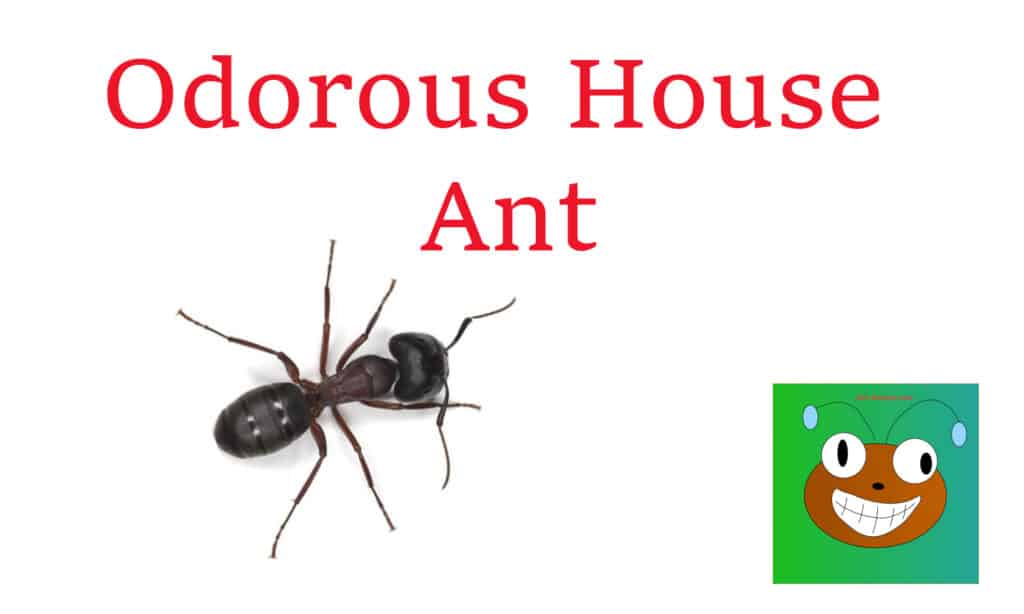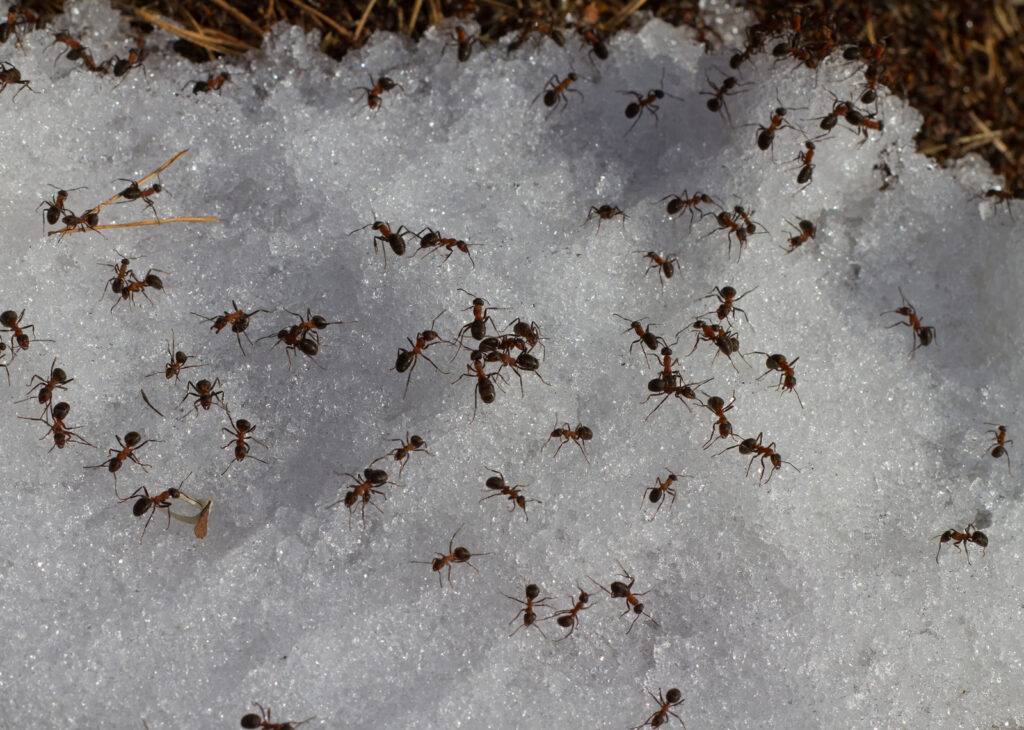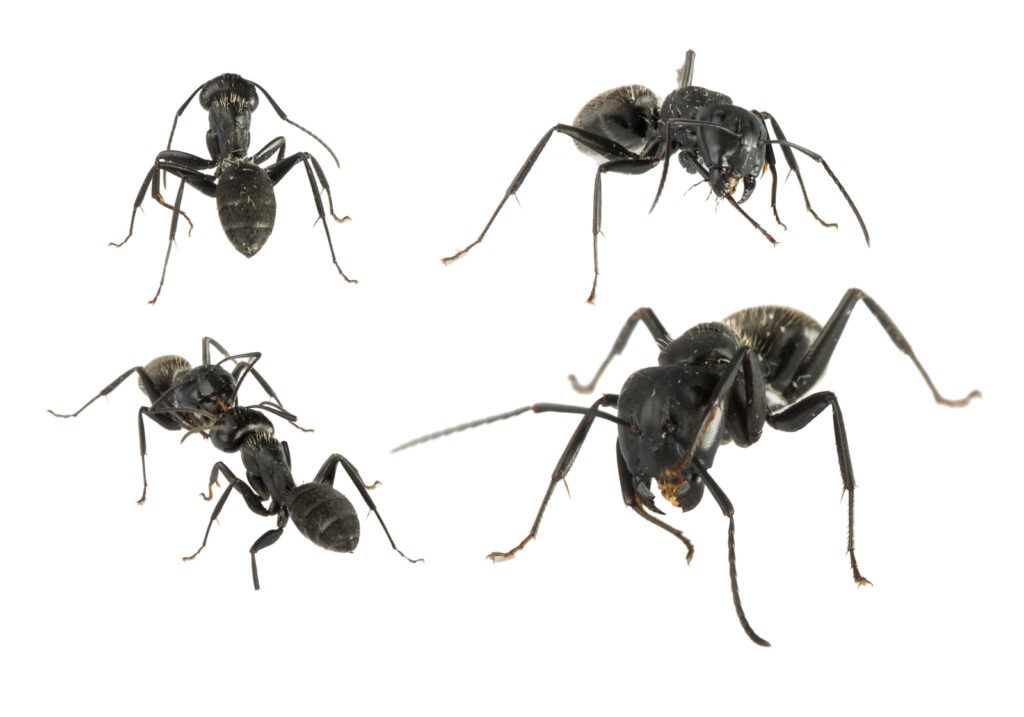Some ants lack an advanced defense mechanism like the stinging and biting found in fire ants. These ant species have developed other tactics to compensate for that deficiency.
One of these tactics is secreting a defensive smell when alarmed or in danger. While many ants have it, specifically, the nail polish smell is usually associated with odorous ants.
However, several other species of ants, like the yellow ants and the trap-jaw ants, also produce odors that do not smell like nail polish.
The smell emitted by odorous ants and other unique fragrances produced by other species serves different purposes.
The distinctive odor is meant to make the ants unattractive to predators. A single ant will also produce the odor to let other ants in the colony know of imminent danger.
Some ants secrete the smell to warn predators or perceived enemies to keep off. Otherwise, the ant will attack in self-defense.
This article dives deep into that notorious nail polish odor and other smells the ants release, why they secrete the odors, and when and which ant types secrete odors that make them smell like chemicals.

Do ants smell, and why?
Ants smell even when a human nose cannot pick up the smell.
Ants communicate by producing chemical signals they pick up with the antenna. Ants release a chemical called pheromone to communicate various messages to fellow ants.
For instance, worker ants depend on the smell left by fellow ants to know about a food source.

Members of an ant colony recognize each other by smelling one another.
They also emit odors to warn nestmates of an imminent threat.
So, all ants emit odors, but a human’s sense of smell is not well developed to pick up most of these tiny smells that ants always produce.
When do ants smell?
Many humans only pick the smell of certain ants. We usually smell ants when we kill them or when they get squished. Ants also produce a noticeable smell when they feel threatened.
The smell is caused by formic acid the ants secrete for self-defense.
Among the ants, these chemical signals serve different purposes.
If the ant identifies a potential threat, they produce formic acid, also called methanoic acid.
One reason for doing this is to smell unattractive to the predator. Smelling awful is a tactic to avoid being eaten or getting attacked.

The pungent odor is also meant to act like an alarm pheromone to warn other ants of the danger.
Also, when the ant feels threatened, the chemical secretions warn the perceived rival to keep off. The ants can attack the perceived enemy if the stink signal warning is not heeded.
Formic acid is also sprayed on rivals, prey, or perceived enemies to kill them, a common tactic wood ants use.
In addition to killing or squishing ants, the above scenarios are other moments when humans can smell the ants.
(Source)
Which ants smell like nail polish?
Odorous ants!
Several species of ants smell, but the one ant type that smells like polish is the odorous ant scientifically known as Tapinoma Sessile.
Among the ant species that smell, odorous ants are the most well-known.
That’s why the ants are named odorous ants.
They are common household sugar ants difficult to get rid of.
When threatened, they secrete formic acid from their abdominal glands, making them smell like blue cheese, rotten coconut, or nail polish remover.
Also, these ants smell when you kill them.
https://www.livescience.com/why-ants-smell-weird
Which other ants smell like chemicals but not like nail polish?
The large yellow ant, the small yellow ant, and the trap-jaw ants emit odors that resemble some common chemicals.
The two yellow ants produce a smell resembling citrus.
The trap-jaw ant gives off a smell resembling chocolate.
Trap jaw ant
Another species that smell is the trap-jaw ant. These ants are famed for their strong mandibles hence the name trap-jaw.
These ants also emit an alarm chemical signal to warn other ants of a possible danger.
Unlike odorous ants that are smelly when provoked, you can only smell the trap jaws after squishing them or killing them.
Again, unlike odorous ants that secrete a smell resembling rotting coconuts, these ants smell like chocolate.
Another difference compared to odorous ants is that the gland that emits the smelly acid in trap jaw ants is located on the head, unlike in odorous ants in the abdomen.
Large and small yellow ant
The yellow ants, both large and small species, also release smells that resemble chemicals.
The yellow ants secrete a smell that resembles that of lemon or citrus fruits, hence their other name, citronella ants.
These ants use the strong, pungent irritating smell for defense.
Like other species discussed, they also use the lemon-like odor to alert nestmates of a possible danger.
Do all ants smell like ink, nail polish or chemicals?
Some ants don’t smell like pen ink or chemicals.
The wood ant is a good example.
This ant sprays large quantities of formic acid (carboxylic acid) on rivals to subdue them or protect itself.
However, some human beings do not smell the chemical secretion produced by these tiny creatures.
Etymologists and biologists attribute the inability of some humans to pick up the smell emitted by wood ants to biological differences in the smelling system.
But this observation shows that not all ants that secrete formic acid have a distinctive odor.

Final Thoughts on ants that smell like polish
Odorous house ants are the most well-known ant type that emits a smell.
When crushed, these common house ants smell like ink, rancid butter, rotting food attacked by penicillin mold, or rotten coconut.
All ants produce pheromones to communicate and share messages during normal activities.
Even the small black ants secrete scent trails they use to communicate about food and identify colony members.
Some smells like alarm signals, warn others about enemies, rivals, or danger.
Humans can only pick up odor from just a few different species of ants because the human sense of smell is dull to most scents emitted by most ants.
In addition to the odorous ant that emits the smell of nail polish, the large and small yellow ants and the trap-jaw ant are other ants with distinct smells.
(Source)

